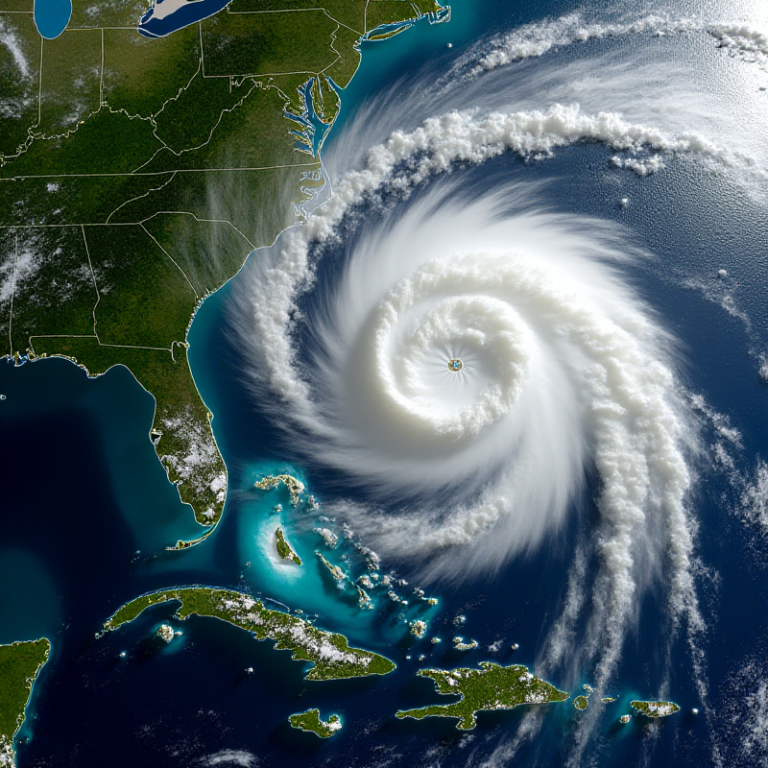Hurricane safety tips are crucial for preparing and protecting your home and family during storm season. Whether you live in a coastal area frequently impacted by hurricanes or somewhere that occasionally faces strong storms, these strategies can make all the difference in ensuring your safety and minimizing damage.
1. Create a Hurricane Emergency Plan
Having an emergency plan tailored to hurricanes is a proactive step that prepares everyone in your household. This plan should include:
- Evacuation Routes: Identify the safest and fastest routes out of your area. Be sure everyone knows where to go if evacuation becomes necessary.
- Communication Plan: Establish how family members will communicate if separated, such as a central contact point or group message.
- Emergency Contacts: Have a list of important phone numbers, including local emergency management agencies, friends, and relatives outside the hurricane zone.
2. Assemble an Emergency Kit
A well-prepared emergency kit can be a lifesaver during and after a hurricane. Include the following:
- Water and Non-Perishable Food: At least one gallon of water per person per day for three days and a three-day supply of non-perishable food.
- Flashlights and Batteries: Ensure you have multiple flashlights and a backup supply of batteries.
- First Aid Supplies: Bandages, antiseptic wipes, and basic medications.
- Important Documents: Waterproof container for storing documents like insurance policies and identification.
- Tools and Supplies: A multi-tool, duct tape, and extra power banks for electronic devices.
3. Secure Your Property
Mitigating damage starts with securing your home. Follow these hurricane safety tips for property protection:
- Reinforce Windows and Doors: Use storm shutters or plywood to cover windows. For doors, ensure they are sturdy and have strong locks.
- Trim Trees and Shrubs: Keep branches trimmed to prevent them from becoming projectiles in high winds.
- Secure Loose Items: Bring patio furniture, garden tools, and other outdoor items indoors to avoid damage or injury.
- Inspect Roofs and Gutters: Clear your gutters of debris and check your roof for loose shingles that could be ripped away by strong winds.
4. Stay Informed with Reliable Updates
Stay aware of hurricane developments through trustworthy sources. Utilize:
- Weather Alerts: Sign up for local weather alerts via text, email, or mobile app to receive real-time updates.
- NOAA Weather Radio: Invest in a battery-powered or hand-crank radio to stay connected if power is lost.
- Local News: Monitor local TV and radio broadcasts for evacuation notices and weather updates.
5. Follow Evacuation Orders Immediately
One of the most important hurricane safety tips is to follow evacuation orders from local authorities without delay. Doing so can prevent serious injury or worse. If evacuation is ordered:
- Leave Early: Avoid getting caught in traffic or worsening weather conditions by departing as soon as possible.
- Bring Essentials: Pack your emergency kit, vital documents, and supplies for pets if applicable.
- Plan for Shelter: Know where you’ll stay, whether it’s with family, at a shelter, or a hotel outside the hurricane zone.
6. Protect Your Pets
Don’t forget about pets when making your emergency plan. Include:
- Pet Carriers: Easy-to-carry containers for safe transport.
- Food and Water: A three-day supply for each pet.
- Medications: Include any necessary medications in your emergency kit.
- Comfort Items: Blankets and toys can help ease stress.
7. Stay Safe During the Hurricane
If you choose or are required to stay home during a hurricane, take these measures:
- Stay Indoors and Away from Windows: Stay in an interior room, preferably without windows, to avoid injury from flying debris.
- Turn Off Utilities if Instructed: Power, gas, and water may need to be shut off to prevent electrical or chemical hazards.
- Avoid Flooded Areas: Never walk or drive through floodwaters. Just six inches of moving water can knock a person off their feet, and one foot of water can carry away most vehicles.
8. After the Storm: Safety Checks and Precautions
Once the hurricane has passed, keep these safety checks in mind:
- Wait for All-Clear Notices: Don’t assume it’s safe to go outside until authorities have given the all-clear.
- Watch for Hazards: Avoid downed power lines, debris, and unstable structures.
- Document Damage: Take photos and make notes of any damage to your property for insurance claims.
- Clean with Caution: If water has entered your home, wear protective clothing and gear while cleaning to avoid contaminants.
Final Thoughts
Hurricane safety tips can mean the difference between a smooth recovery and a devastating outcome. Always prepare well in advance, stay informed, and act quickly when necessary. With these precautions, you can help ensure the safety and well-being of your family, pets, and property when faced with severe weather.
Related article: How to Prepare for a Major Flood Safely



